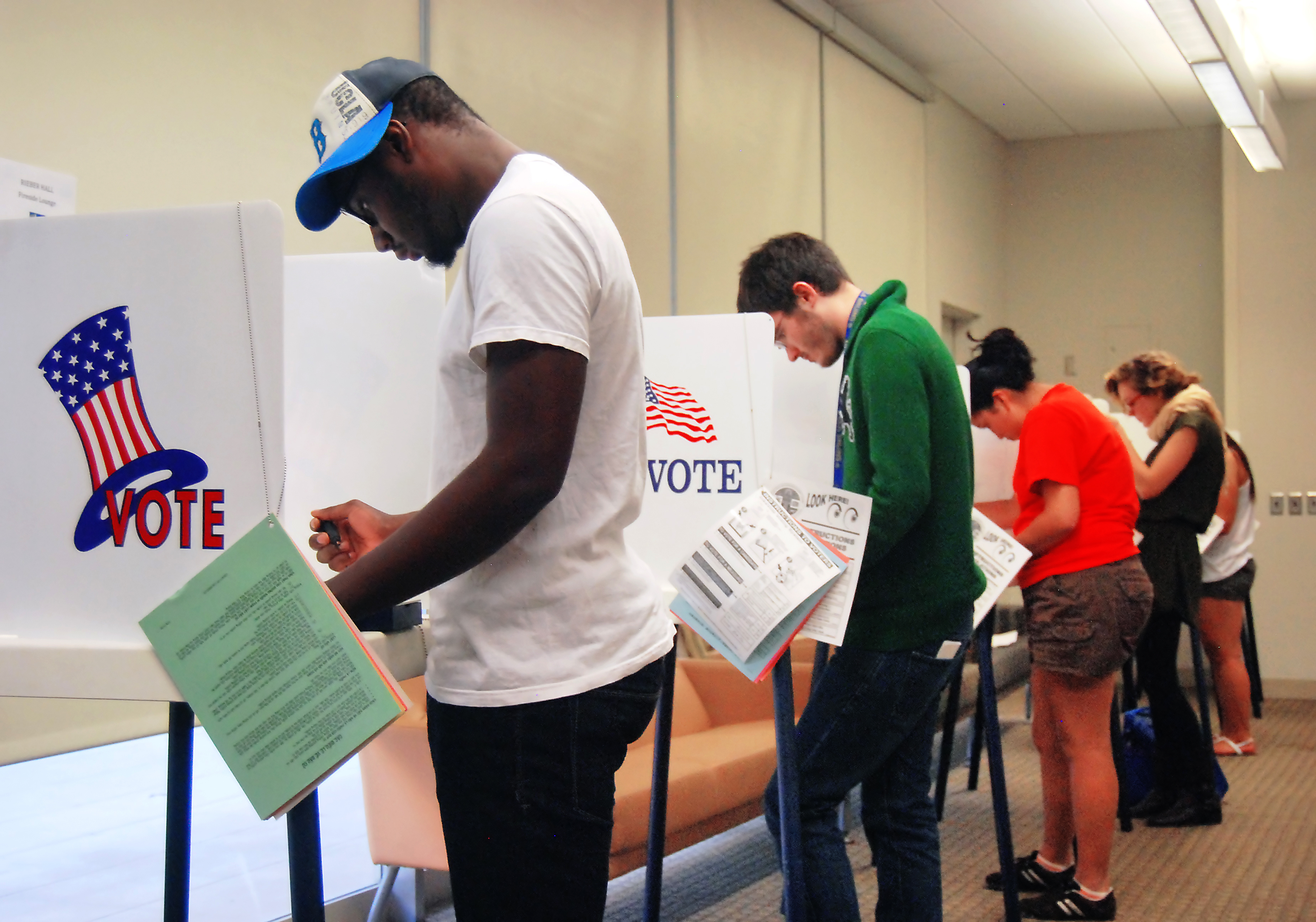The percentage of voters registered without a party preference ”“ or independent ““ has reached an all-time high in California, according to registration statistics released recently by the California Secretary of State’s office.
Over the past four years, the number of voters who didn’t register with a political party has increased by about 600,000, or 1.8 percent, according to the report. About one in five Californians currently does not affiliate with a political party, according to the report.
Second-year communication studies student Zack Chin is looking to support less traditional parties in November.
Chin said he registered to vote without selecting a political party because he doesn’t think parties necessarily determine a candidate’s abilities and beliefs.
Chin currently supports Libertarian presidential hopeful Gary Johnson because he agrees with the candidate’s policies to end the war, cut down on foreign aid and phase out social security.
Moderates increasingly do not show much support for either party, which may account for the rise in independent voters, said Jeff Lewis, chair of the UCLA political science department.
The recent change in the primary voting system in California may have contributed to the upswing in voters without a political party, Lewis said.
The Top Two Open Primary Act, which applies to congressional and state elections in California but not presidential, allows voters registered with any party to vote for any candidate in a primary election. A primary election is a preliminary election where party delegates vote for their respective candidates.
The top two candidates, regardless of their party, move on to the general election in November under the new system.
“There’s not a lot of reason to register as Democratic or Republican (with the new system),” Lewis said. “It’s basically an expressive thing; the practical significance (of registing with a party) is not that great.”
Some independent students, however, are leaning toward the traditional parties for this year’s elections.
Adam Skinner, a third-year comparative literature student, said he chose to remain unaffiliated with a specific party when he registered because he did not feel strongly about any of them.
Although he mostly votes for Democratic issues and candidates, Skinner said he is uncomfortable associating himself with the party because he may not always vote that way.
Chin feels he has more options by being unaffiliated with a party, he said.
“I think the advantage of being an independent voter is having more choices (and) being able to select more,” he said. “I think that’s really important in an election like this.”
Elliot Kang, a second-year statistics and economics student, said he registered without a party preference because he is socially conservative but is more fiscally moderate.
Right now, he plans to vote for Republican presidential candidate Mitt Romney because he disagrees with President Barack Obama’s stances on issues like gay marriage and abortion.
Despite the trend of increasing independent voters, Lewis anticipates California will likely remain a Democratic state in this presidential election because the party continues to hold majority support from voters, he said.
Before heading to the polls, Kang intends to learn more about the candidates by watching the upcoming presidential debates, he said.
